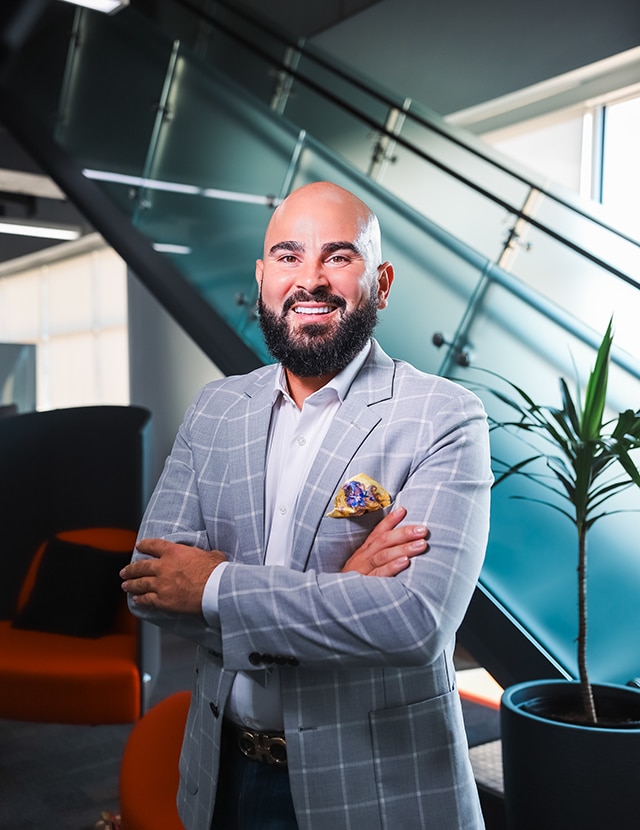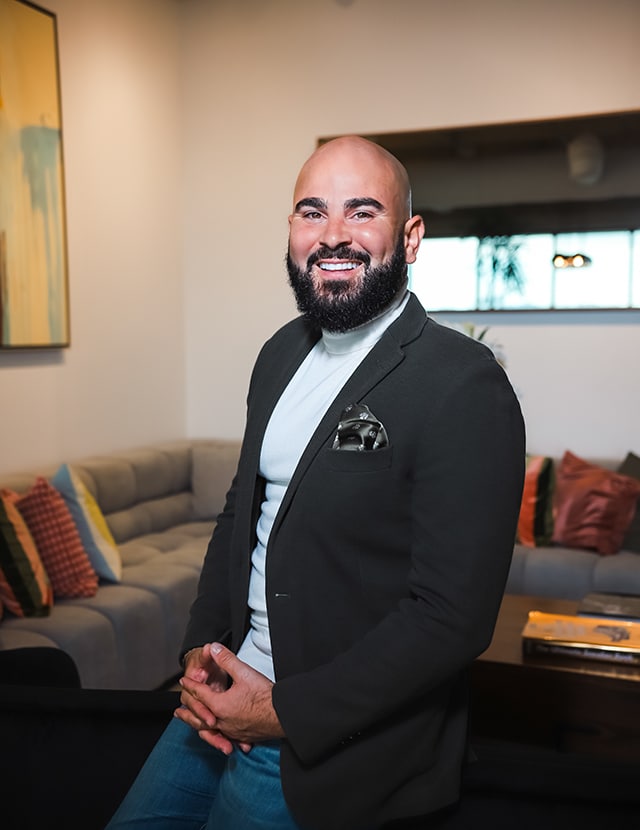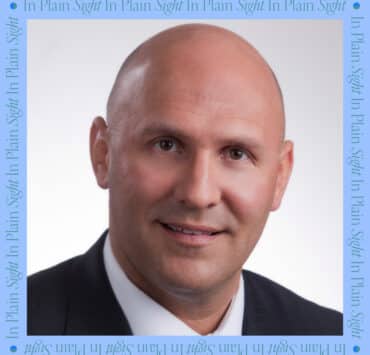|
Getting your Trinity Audio player ready...
|
Omar Morales believes that everyone should have a personal board of directors who can provide sage advice during key decision points. That begins when a person is young, impressionable, and yet to understand their own potential.
He likens it the adage “it takes a village to raise a child.” Growing up, there were members of his family and community who contributed to creating a positive, healthy and safe environment that fostered his growth. Similarly, board members can include parents, educators, coaches, faith-based leaders and other community members who may help young people navigate life, both personally and professionally.
Morales acknowledges several people who helped him get where he is today through their support during key inflection points as well as seeing potential in him far beyond his wildest dreams. These key figures include his uncle Jhonny, aunts Miriam and Bethzaida, chemistry and computer science teacher Jennie Hughes, first mentor Mayor Gigi Traore, fraternity brothers Ceron Sims and James Hendricks, and his first manager at Procter & Gamble Eryvett Gonzalez.
“My mother saw [my] potential and interests, and she wanted me to connect with other like-minded young people.”
Omar Morales
Now, the senior director of human resources on the revenue side of GitHub, Morales partners with business leaders to translate business strategies into organization and talent strategies. The scope of his role is wide reaching and spans strategy alignment, organization design, executive coaching, talent management, and diversity and inclusion.
GitHub’s product is an artificial intelligence-powered platform for software developers achieving $1 billion in annual revenues and serving ninety of the Fortune 100 companies. Clients include Telus, P&G, Mercedes-Benz, KPMG, Pinterest, and Stripe.

Originally from the Midwest, Morales’s journey started at Cleveland State University followed by graduate and executive certificates from Columbia University and Georgetown University. He earned a master’s degree in organizational development from Pepperdine Graziadio Business School and is currently enrolled at Case Western Reserve University where he is pursuing a PhD in Management. While that’s a lot of coursework, he believes education should be a lifelong imperative.
Nevertheless, he didn’t always have HR in his career scope. “Early on, I had many influences in my life that shaped who I am,” he says. “When it came to choosing what to study, I wanted to give back. Initially, I studied social work.” But he came to realize it wasn’t what he saw himself ultimately doing, admitting that some of the work was “too close for comfort.” So, he reached out to a guidance counselor who suggested that he instead pursue HR, which, in many ways, is corporate social work.
It turned out to be a good fit and fulfilled Morales’s desire to help people. His family is from Puerto Rico, and he was the first to be born in the continental US. The first five years of his life were spent in a Puerto Rican neighborhood in Cleveland, but because members of his extended family settled in Mishawaka, Indiana, they moved there by the time he entered first grade.
“Early on, I had many influences in my life that shaped who I am.”
Omar Morales
“It’s a smaller town, near South Bend,” Morales says. “It wasn’t diverse. From first through ninth grade, I was very much in the minority. But then we moved back to Cleveland, which was an altogether different, multinational situation. I went from a very homogenous to very diverse experience that benefits me today. I’m able to connect with people with diverse backgrounds and lived experiences.”
In addition to going to high school and being in an environment with a broad mix of fellow students, teachers, neighbors, and friends, the figure he deems the president of his personal board of directors—his mother—made a strong recommendation that he sign up for a youth development program through Catholic Charities to enrich his development.
“My mother saw [my] potential and interests, and she wanted me to connect with other like-minded young people,” Morales reflects. “It allowed me to work in a variety of capacities. For example, at age fourteen, because of my fluency in English and Spanish, I served as a secretary for the Hispanic affairs office at Catholic Charites. Working in this program sparked an insatiable desire to continue learning, developing, and contributing to my community.”
It hardly stopped there. Over time, Morales has joined, volunteered with, and actively engaged in a long list of organizations serving a multitude of constituencies: Alpha Phi Alpha Fraternity Inc. (notable alumni include Martin Luther King Jr., W.E.B. DuBois, Fredrick Douglass, Thurgood Marshall, and Cornell West); Upward Bound, Genesys Works, and the Boys and Girls Club.

To Morales’s earlier point about enduring values, “I’d like to call out the importance of family, staying connected to my nieces and nephews, and modeling that ‘si se puede,’” he says. He recognizes the importance of his role within his family, and he intentionally spends time with his nieces and nephews, emphasizing the importance of education as an access point for opportunity. He sees the potential in each of them and is committed to help them actualize their full potential.
“My parents migrated to the US from Puerto Rico to pursue opportunity. Although they were faced with adversity, they successfully laid the foundational building blocks, unconditional love, enduring values, and resolute encouragement,” Morales explains. “The mustard seeds harvested then are bearing fruit [today], and for this I honor them, their resilience, their wins, and their commitment to providing me a life and experiences they did not have. And, they were not alone in this journey, it took a village.”
When he speaks to groups of young people, he references the movie, The Karate Kid. The protagonist learned from an adult who saw his potential and was invested in helping the kid succeed. That adult (Mr. Miyagi) was an early member of the kid’s board of directors or mentor. It’s a lesson he retells to others as well, emphasizing how with some help and guidance, everyone can actualize their full potential, one goal at a time.
To that end, he encourages readers to ask themselves: who would benefit from having you on their personal board of directors? And who can you invite to fill vacant seats on yours?

